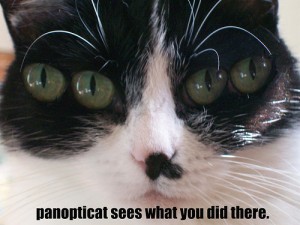Chip Saltsman, a candidate to head the Republican National Committee (RNC), decided to spread holiday cheer by sending an audio CD to members of the RNC that included a parody song called “Barack the Magic Negro.” The song a mocks Obama’s appeal to whites in the voice of an Al Sharpton sound-a-like.
As someone who worked in politics (briefly) before going into academia, I find it difficult to wrap my head around boneheaded decisions like this. Why would anyone, no less a candidate for RNC Chairman, think this was a good idea. It isn’t like this is a Congressman without greater ambitions catering to a constituency that might find this amusing (Saltzman was Mike Huckabee’s campaign manager). If that were the case, I could understand using out-group racial mockery to strengthen ties among your brethren. But this guy is running for a national party. Unfortunately for him, he’s running the be operational head of a party in an increasingly diverse country. Tough break, that.
Maybe it because I’m getting older, but I find myself shaking my head at incidents like this rather than indulging in righteous anger. The act seems petty, the behavior of a flailing wing of a political party that would just as soon cast explicit racists out (See current RNC chair Mike Duncan’s response).
For a party that needs to get its bearings quickly if it wants to serve as a useful push back to the majority party, these types of stunts renders it impotent. Those of us who are more left of center can hold this incident up as an example of a backwards, bigoted party. In reality, most of the ideas of the Republican party have a place in American political discourse but this stuff doesn’t help.
You live by the Southern strategy, you die by the Southern strategy… I guess. My New Years hope for my Republican friends is that they have the good sense to elect Michael Steele, the sensible, African-American, former Lieutenant Governor of Maryland, for RNC chair. A two party system works better with two viable parties, and it would be nice to drown the Southern strategy in the bathtub (not the federal government… Grover Norquist).





